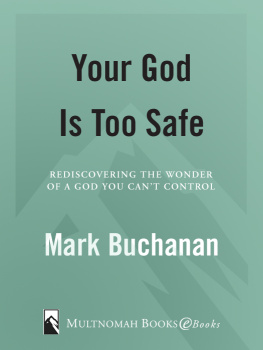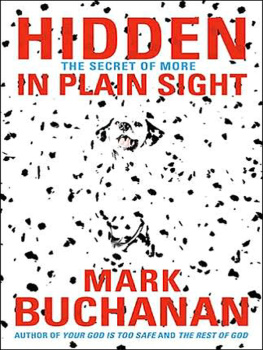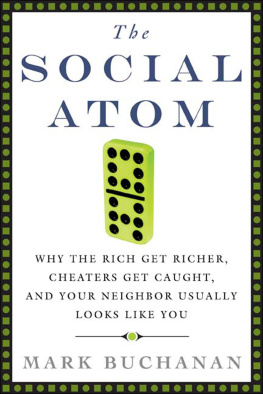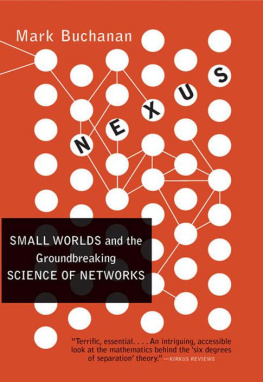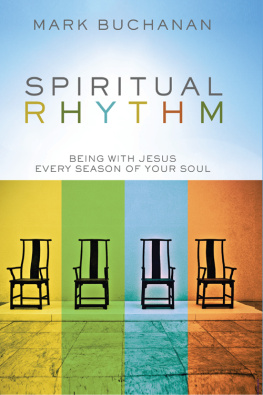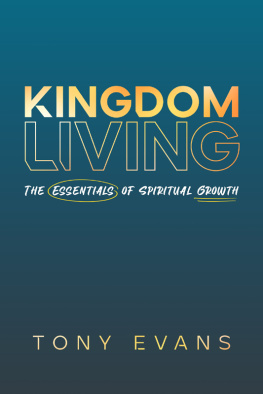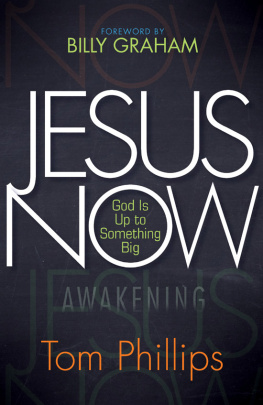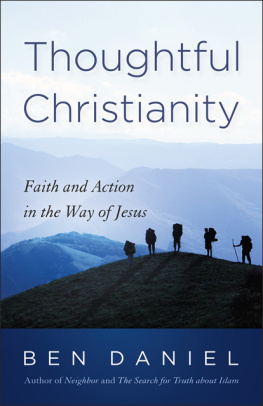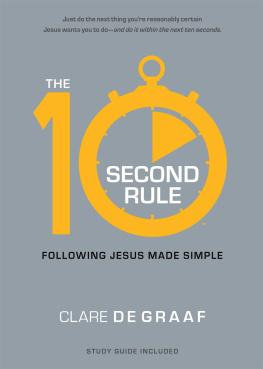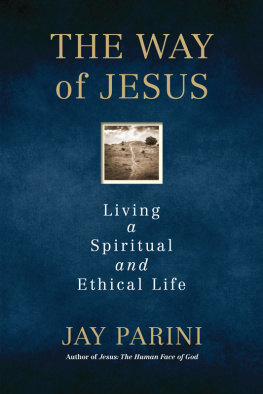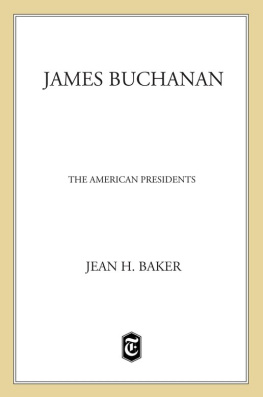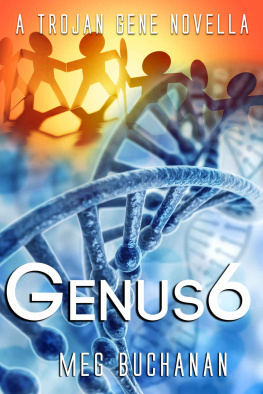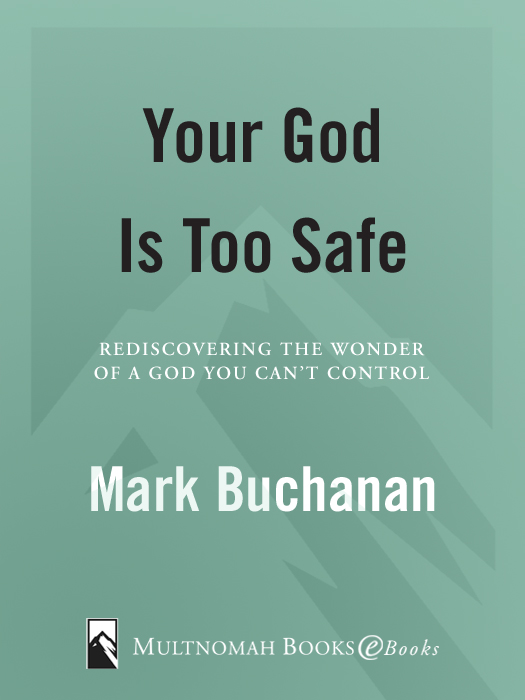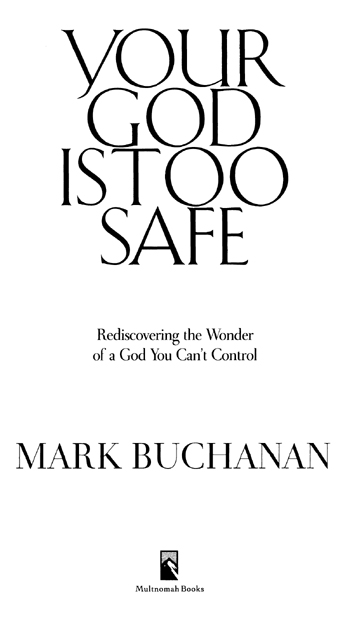I could not put this book down. Surely the most needless tragedy in the body of Christ is bored Christians. Following Jesus is the wildest ride on earth. Its time we took off the seat belts.
Beth Moore
Best-selling author, speaker and founder of Living Proof Ministries
Aslan is not a tame lion, wrote C.S. Lewis. Mark Buchanan shows us what this means. The undemanding God-in-a-bottle genie, Who exists to serve us, is a modern heresy. Its the God of the Bible whos actually calling the shots! We are the servants of a fierce KingOne who is gracious but never manageable. Your God Is Too Safe reminds us again and again what it means that Jesus is Godand were not! Strangely, its dangerous faith in our untamed Savior that leads us to the joy we crave. The breath of life rises off of the pages of this book!
Randy Alcorn, author of The Treasure Principle, Lord Foulgrins Letters, Dominion, and Deadline
I dedicate this book to my BMWBeautiful Marvelous Wife: Cheryl, thank you for your purity of heart and deep prayerfulness. You are to me living proof that the things unseen matter most and shape us most; and to my children: Adam, Sarah, and Nicola, thank you for your laughter and wonder and hope. You continually remind me that I walk on holy ground. I love all of you.
YOUR GOD IS TOO SAFE
published by Multnomah Books
published in association with the literary agency of Ann Spangler and Company,
1420 Pontiac Road SE, Grand Rapids, MI 49506
2001 by Mark Buchanan
Scripture quotations are from:
The Holy Bible, New International Version
1973, 1984 by International Bible Society,
used by permission of Zondervan Publishing House
The Holy Bible, King James Version ( KJV )
Published in the United States by WaterBrook Multnomah, an imprint of the Crown Publishing Group, a division of Random House Inc., New York.
M ULTNOMAH and its mountain colophon are registered trademarks of Random House Inc.
ALL RIGHTS RESERVED
No part of this publication may be reproduced, stored in a retrieval system, or transmitted, in any form or by any meanselectronic, mechanical, photocopying, recording, or otherwisewithout prior written permission.
For information:
MULTNOMAH BOOKS
12265 ORACLE BOULEVARD, SUITE 200
COLORADO SPRINGS, CO 80921
Library of Congress Cataloging-in-Publication Data
Buchanan, Mark Aldham.
Your God is too safe : rediscovering the wonder of a God you cant control / by Mark
Buchanan. p. cm.
eISBN: 978-0-307-56542-6
1. Spiritual lifeChristianity. I. Title.
BV4501.3.B83 2001 00-012051
248.4dc21
v3.1_r3
CONTENTS
FOREWORD
T HE C HRISTIAN LIFE HAS LIFE AS ITS SUBJECT, NOT C HRISTIAN . Life is the noun; Christian is only the adjective. Not that the adjective is unimportant. It is, in fact, necessary, for life is subject to many distortions and illusions, betrayals and reductions. The adjective Christian is intended to set life apart from the diluted, deviant, or counterfeit forms that seek to pass themselves off as the real thing.
But the adjective doesnt seem to be working very well these days. Instead of giving the noun a salty zest, it often flattens it to something hardly distinguishable from bland survival. This is not good. In this book about the formation of the Christian life, however, the adjective is used very well, indeed.
An accurate understanding of the formation of the Christian life requires three things: stories well told, Scripture sharply imagined, and language skillfully used. All three are essential.
Stories. A story is the verbal form that most adequately conveys our actual, day-to-day, ordinary liveswho we are and the way we live. These days, virtually all the words used to account for what we are and meantest scores, census figures, medical data, psychological profiles, academic transcripts, economic status, work performance, religious affiliation, racial category, political opinion, moral behaviorare abstractions and generalizations that lump us into impersonal file drawers. They are observations of outsiders that have little to do with who we really are. Only story provides the diction and syntax that reveals the unique particular, the inner identity, and the intricate web of relationships that account for who we areour life.
Unfortunately, most of the attention we receive in contemporary society is indifferent to story; that is, to the way we actually live, our personal uniqueness. Most of the people who seek to understand us and tell us what they understand are not interested in us at all, but in something about us that they can use to their profit or fix for a fee. The more such de-storied language gets inside of us, the less storied we become. Life leaks away.
The formation of the Christian life requires stories well told.
Scripture. Scripture reveals God present and at work in our world and our lives. The revelation is given in the context of a multitextured, meandering, and somewhat baggy account of ancient Israel and early church, at the core of which is the crisp, focused life of Jesus. Most of the Christian life has to do with who God is and what He does in Israel, the church, and Jesus. Scripture is our primary access to this massive, all-encompassing, all-involving revelation. All the terms and details of our lives are worked out in the presence of Gods life in responsive relation to Jesus.
But we live in a time and place in which we feel that we are or ought to be on our own. And we are technologically so far removed from Bible times that whatever went on in that world, however true it might have been, seems totally remote. Understandably, then, we are impatient with those arcane details packed into the pages of our Scriptures. Give us a summary of the truth, we say, some biblical principles by which we can live. But we can no more summarize and generalize Gods revelation in Scripture than we can our own lives. Summary reduces. Generalization reduces. But we want life. The personal and lived details are essential. God is person, and we cannot respond to Him as category or function or idea. If we are to live fully and well, we have to know whom we are living with and for. When Scripture is depersonalized, we lose access to the very ground beneath our feet.
The formation of the Christian life requires Scripture sharply imagined.
And language. Language is the primary means by which life develops and matures. God, the Lord of language, spoke the world and our lives into being. Jesus, the Word made flesh, used language to proclaim the existence of the kingdom of God, call disciples, forgive sin, heal bodies, rebuke injustice and hypocrisy, express love, and teach the truth. Our words, spoken and written, continue to make, form, and shape life. Nothing about us is more life generating, life deepening, and life enriching than our use of language.
It follows that the widespread degradation and trivialization of language that marks our present culture constitutes a major threat to life. When language is taken over by those who sell, propagandize, bully, demean, mislead, and gossip, life is cheapened to a commodity; people are reduced to customers. And so it is of critical importance that the men and women who care fervently about lifelife-in-formation, the Christ-formed lifebe passionately attentive to the use of language. When the Christian life is spoken or written in tired clichs and sentences sodden with saccharine, the adjective

